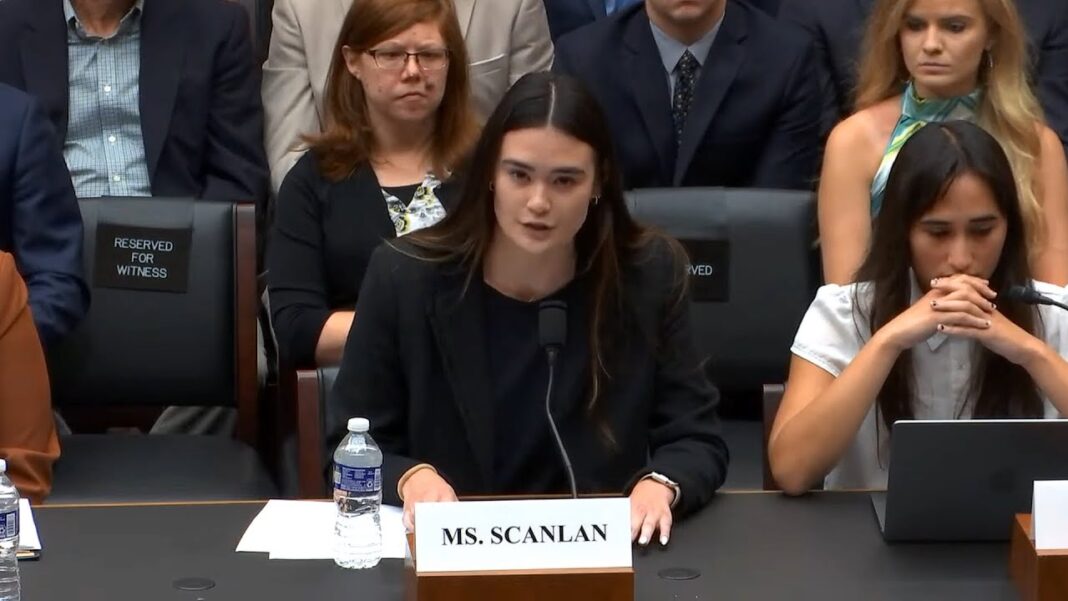This petition was started by John Mark Heffington and sent to the Texas Senate and to Lieutenant Governor Dan Patrick on August 20, 2023.
A Petition to the Texas Senate for a Redress of Grievances under the First Amendment of the US Constitution and under the Bill of Rights of the Texas Constitution
The Texas House of Representatives arrogantly, condescendingly, AND UNLAWFULLY assumed a paternalistic role over the People of the State of Texas by presuming to correct what they considered to be the irresponsible reelection of Attorney General Paxton. The impeachment of Attorney General Paxton was unlawful, and the People petition the Texas Senate to dismiss the articles of impeachment for the following reasons:
• The Bill of Rights of the Texas Constitution guarantees that all political power is inherent in the People, and all free governments are founded on their authority, and instituted for their benefit,
• Because all political power is inherent in the People, Texas law and the Texas Supreme Court affirm, according to the Forgiveness Doctrine, that since the People reelected Attorney General Paxton, no act publicly alleged to have been committed by Attorney General Paxton prior to the election on 8 November 2022 may be used in impeachment,
• The entire impeachment proceeding was unlawful, denying Attorney General Paxton his Right to due process, since the House Committee on General Investigating (GIC) did not follow the statutory order in Texas Government Code §665.001 IMPEACHMENT PROCEEDING,
• The GIC conducted their investigation in secret, did not allow Attorney General Paxton to present testimony or evidence in his defense, and did not allow the voters to ask questions or make comments during the public hearing,
• All allegations against Attorney General Paxton were alleged to have occurred prior to the election on 8 November 2022,
• No testimony was taken under oath, the articles of impeachment are unconstitutionally vague, and, in matters of removal of a state officer, prior Texas Supreme Courts have required evidence to meet the standards of preponderance, clear and convincing, and undisputed,
• The Texas Supreme Court held that “a removal proceeding” may not equate to “political factions or settle political differences which properly find their solution at the ballot box”,
• The Texas Supreme Court recognized “the serious nature of the proceeding in depriving one of a public office to which a majority of the electors have chosen him and in nullifying the choice of the electors”.
We the People and the Citizens of the State of Texas name as our grievance, and demand as a redress the dismissal of, the unlawful impeachment of Texas Attorney General Warren Kenneth Paxton Jr. by the Texas House of Representatives.
WHEREAS, the First Amendment to the Constitution of the United States of America guarantees “Congress shall make no law … abridging … the right of the People … to petition the Government for a redress of grievances; and
WHEREAS, Article 1, Section 2 of the Bill of Rights of the Constitution of the State of Texas guarantees “[a]ll political power is inherent in the people, and all free governments are founded on their authority, and instituted for their benefit,” and
WHEREAS, Article 1, Section 27 of the Bill of Rights of the Constitution of the State of Texas guarantees “[t]he Citizens shall have the right to … apply to those invested with the powers of government for redress of grievances or other purposes, by petition, address or remonstrance,” and
WHEREAS, Texas Attorney General Warren Kenneth Paxton, Jr. has well served the Citizens of the State of Texas, standing up for our Constitutional Rights and Freedoms, and fighting to protect our Peace and Safety, boldly and consistently for the last eight years; and
WHEREAS, the House Committee on General Investigating (GIC) violated Texas Government Code §665.001 by reversing the statutory order of the Impeachment Proceeding and investigated the matter relating to the contemplated impeachment, in secret, before presenting the articles of impeachment, thereby denying Attorney General Paxton his Right to due process; and
WHEREAS, Attorney General Paxton was impeached by the Texas House of Representatives on May 27, 2023, after a report was issued by the GIC, which contained 20 articles of impeachment. The GIC submission, which consisted solely of a transcript of the GIC hearing, was considered by the House for approximately 48 hours before the impeachment vote was called and taken; and
WHEREAS, no testimony was taken in the House, and Attorney General Paxton was not allowed to speak to the House or to offer any rebuttal evidence or testimony despite his offer to do so, which was refused; and
WHEREAS, the impeachment occurred under unlawful circumstances, for example:
1. Each of the Texas House, in the Matter of Carrillo, and the Texas Supreme Court, repeatedly recognized the solemn nature of impeachment, and were loathe to override the judgment of the People, yet, in the impeachment of Attorney General Paxton, the House did not appear to acknowledge the gravity of unilaterally removing a duly elected officer of the State, and flippantly disregarded the express judgment of the People;
2. In the Matter of Carrillo and in Re Brown, the Court explicitly applied the “spirit” of the Forgiveness Doctrine;
3. In the Matter of Carrillo and in Re Brown, the Court recognized “[t]he rationale for the [Forgiveness] doctrine is the sound reason that the public, as the ultimate judge and jury in a democratic society, can choose to forgive the misconduct of an elected official. Reeves v. State, 114 Tex. 296, 267 S.W. 666 (1924)”;
4. The Court held that the Forgiveness Doctrine does not apply for modes or proceedings authorized by the Texas Constitution, however, the Constitution authorizes the House to impeach, but does not authorize a proceeding or mode for impeaching a Texas Attorney General, the proceedings being authorized in Texas Government Code §665..001 IMPEACHMENT PROCEEDING; therefore, the Forgiveness Doctrine does apply to impeachment of an Attorney General;
5. In Re Laughlin, the Court stated, “the serious nature of the proceeding in depriving one of a public office to which a majority of the electors have chosen him and in nullifying the choice of the electors ought, at the very least, to require proof by clear and convincing evidence. We are also of the opinion that the evidence must establish the charges as laid in the presentment of causes”;
6. In Re Brown, the Court held “[a]s long as [judges] are required to run the gauntlet of party primaries and general elections, I would be hesitant to set aside the decision of the electors because of acts which they presumably knew about before re-electing him to the office. See In re Laughlin, 153 Tex. 183, 265 S.W.2d 805 (1954)”;
7. In Re Laughlin, the Court held, “a removal proceeding against a [district judge]” may not equate to “political factions or settle political differences which properly find their solution at the ballot box”;
8. The alleged evidence considered by the House does not meet established standards recognized by the Court for removal of a state officer: State ex Rel. Russell v. Knorpp, the facts must be “undisputed”; in Re Brown, the evidence must meet the threshold of “preponderance”; in Re Laughlin, evidence must be “clear and convincing”;
9. The articles of impeachment presented by the GIC are unconstitutionally vague and do not provide clear “particulars”, thereby preventing Attorney General Paxton from presenting a proper and vigorous defense;
10. The unconstitutionally vague articles of impeachment, devoid of clear particulars, do not meet the standard of “disqualifying” required to overcome the Forgiveness Doctrine;
11. The Court in Reeves v. State ex rel. Mason held, the phrase “election to office” has been held to also mean the re-election to the term of office from which the officer is sought to be ousted. (cited in Knorpp);
12. The Court held “[n]either may removal be predicated upon acts antedating election, not in themselves disqualifying under the Constitution and laws of this State, when such acts were a matter of public record or otherwise known to the electors and were sanctioned and approved or forgiven by them at the election”, yet the only disqualifying conditions recited in the Texas statutes and Constitution are impeachment, conviction and removal from office;
13. The GIC did not allow the public to provide comments or ask questions during the public hearing, as the House did allow the public to provide comments and ask questions during the public hearing in the impeachment of Carrillo;
14. The GIC admitted that none of the witnesses who provided information to that committee were placed under oath before giving their statements as required by Texas Government Code §301.022;
15. The GIC included in its consideration and in the articles of impeachment at least six articles based on events alleged to have taken place before January 1, 2023, the first day of Attorney General Paxton’s current term. Such events may not serve to support impeachment per Texas Government Code §665.081 and nearly one hundred years of Supreme Court precedent beginning with Reeves v. State, 267 S.W. 666 (Tex. 1924);
16. Neither the GIC nor the House of Representatives allowed Attorney General Paxton the opportunity to present evidence in his defense or to cross-examine witnesses, which is contrary to the spirit of the U.S. Constitution Amendments V and VI and to the precedent established by the Texas House of Representatives in the 1975-76 Carrillo impeachment proceeding; and
WHEREAS, the Citizens of the State of Texas will not be relegated to having the status of nonparticipant citizens;
WHEREAS, the Texas House of Representatives, acting arbitrarily against Texas Law, against the Texas Constitution, and against findings by the Texas Supreme Court, dismissively ignored the role of the Citizens of Texas as the ULTIMATE judge and jury to pass judgment on alleged acts of misconduct by a state officer, and willfully chose to reelect for a second time Attorney General Paxton;
WHEREAS, if the Impeachment by the Texas House of Representatives is allowed to stand, then the House will have effectively unconstitutionally abolished the long-standing Forgiveness Doctrine and will have unconstitutionally removed a check held by the People against arbitrary power by the government (Bond v United States);
WHEREAS, the House never considered the Forgiveness Doctrine in their deliberations on impeachment, despite the fact that both the Constitution and the Supreme Court recognize that the People are a party to the act of impeachment;
WHEREAS, the Republican House leadership unconstitutionally applied pressure to Representatives to vote in favor of impeachment;
WHEREAS, due process and the rule of law are the very foundation of our republic and necessary to the proper functioning of a free society, without which we become nothing more than a banana republic; and
WHEREAS, it is the sincere desire of the Citizens of Texas that the State of Texas not become a banana republic; and
WHEREAS, the articles of impeachment are unsupported by competent and admissible evidence and are an affront to the presumption of innocence; now
THEREFORE, BE IT RESOLVED that the Citizens of Texas CONDEMN the politically motivated impeachment of Attorney General Paxton by the Texas House of Representatives and hereby IMPLORE Texas Lieutenant Governor Dan Patrick and members of the Texas Senate to uphold Constitutionally guaranteed due process, fairness, precedent, and the rule of law by rendering judgment as a matter of law in the Texas Senate on the grounds that the House of Representatives failed to satisfy due process, to comply with applicable Texas law, and to adhere to precedent; that the articles of impeachment be dismissed with prejudice; and that Ken Paxton be allowed to promptly resume his duties as the duly elected Attorney General.






